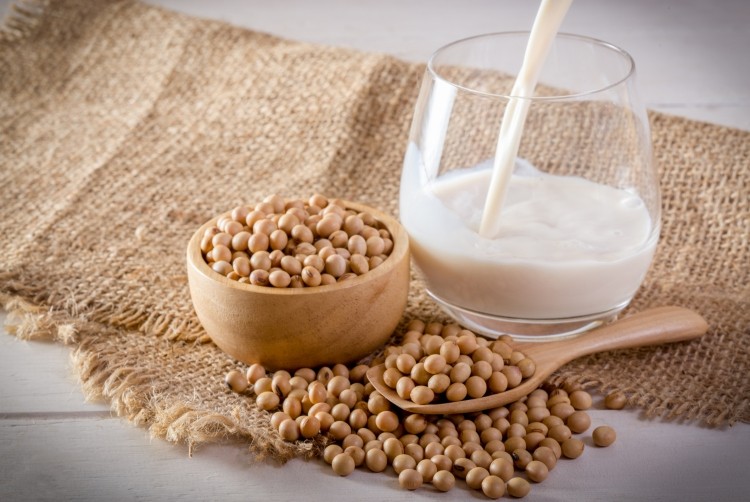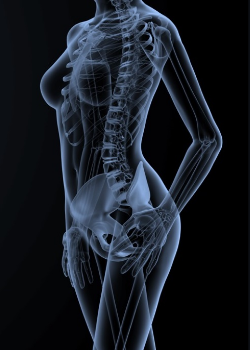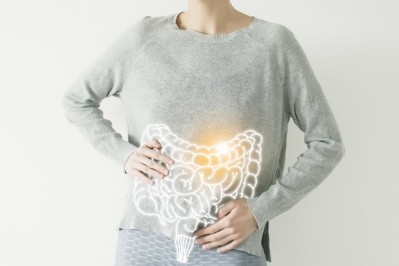Fermented soymilk-honey improves bone marker in menopause

Osteoporosis is a chronic disease characterised by a decrease in the density and strength of the bones. Menopausal women are prone to osteoporosis as a result of a decreased oestrogen hormone and reduced bone mass (an average of 2–5% per year).
Osteoporosis patients are often prescribed vitamin D and calcium supplements, however these can cause some side effects such as digestive tract disorders and kidney stones. Milk consumption is the primary dietary source of these nutrients but consumption has reduced in recent years due to allergies, lactose intolerance, and veganism. Consequently, there is a growing need to develop alternatives derived from plants.
Gut health benefits of fermented soymilk-honey
Several studies have been performed on the role of probiotics and prebiotics in reducing the effects of menopause. In individuals with low calcium consumption, prebiotics have been found to be an effective way to enhance calcium absorption and improve bone mineral density. Thus, the combination of probiotics and prebiotics, called synbiotics, can provide a synergistic effect.
Studies have suggested soy milk as a medium for probiotics and prebiotics, to improve both health benefits as well as taste. Oligosaccharides present in soybeans, especially stachyose, are able to stimulate the growth of bifidobacteria, therefore they are characterised as prebiotics.
Furthermore, the high content of isoflavones resembling the oestrogen structure, has the potential of reducing the risk of osteoporosis, menopausal symptoms, and breast cancer.
What's more, the nutritional value and concentration of bioactive compounds in soybeans can be increased through fermentation. Soybean fermentation with β-glucosidase producing bacteria can convert glucoside isoflavones into aglycone isoflavones, which possess higher biological activity and bioavailability.
Also, honey contains fructooligosaccharides which act as prebiotics. Therefore, the addition of honey to fermented milk can increase the growth of bifidobacteria and extend the shelf-life of the product via enhanced lactic acid production and pH lowering.
Studies have also found Lactobacillus acidophilus counts were improved in formulas containing honey, soy milk, and aloevera.
The study
This current study, conducted in Pekanbaru City, Riau Province, Indonesia, therefore aimed to examine the effect of fermented soy-honey milk using different probiotics (Lactobacillus casei subsp. casei R-68 and Lactobacillus plantarum 1 R. 1.3.2) on blood serum osteocalcin levels (bone health biomarker) in postmenopausal women.
A 90-day pre–post quasi-experimental study with a control design was conducted on 54 postmenopausal women divided into three intervention groups namely, the soymilk (SM) group, the soymilk-honey fermented with Lactobacillus casei subsp. casei R-68 (SMH Lc) group, and the soymilk-honey fermented with Lactobacillus plantarum 1 R 1.3.2 (SMH Lp) group.
Participants consumed 100 mL of soymilk (SM) or fermented soymilk with honey (SMH Lc or SMH Lp) for 90 days. At the beginning and end of the study, the blood serum osteocalcin level was measured and subjects’ health status was assessed, such as cholesterol total, random blood glucose, and uric acid levels.
Results
The results presented that in the SMH Lp group, 90 days supplementation of soy-honey milk fermented with Lactobacillus plantarum 1 R 1.3.2 significantly reduced the level of blood serum osteocalcin.
The report concludes: "This study revealed that the treatment of soy-honey milk fermented with Lactobacillus plantarum 1 R 1.3.2 in postmenopausal women could significantly reduce the serum osteocalcin levels. However, soy-honey milk fermented with Lactobacillus casei subsp. casei R-68 could also decrease serum osteocalcin levels, but without significance.
"In conclusion, a more conclusive study is required with using more than one bone marker to determine bone health, a randomized controlled clinical trial design, increasing the sample size, extending the intervention time, and measuring bone mass density before the intervention."
Source: Nutrients
Desfita, S.; Sari, W.; Yusmarini, Y.; Pato, U.; Zakłos-Szyda, M.; Budryn, G.
"Effect of Fermented Soymilk-Honey from Different Probiotics on Osteocalcin Level in Menopausal Women"
https://doi.org/10.3390/nu13103581
Linked resource

Probiotics for a smooth menopause transition
In this report, Lumina Intelligence reviews the shifting perceptions of menopause, overviews some of the recent science studies and zooms in on the current offering within this niche.







